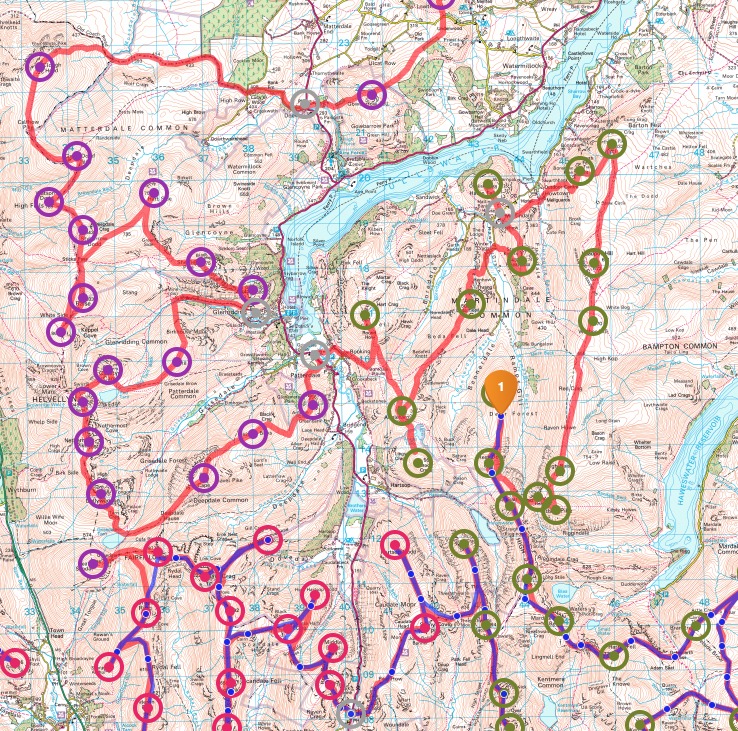A tough trail run can be even more of a grind on the brain than it is on the body. While running offers a mental challenge whether you’re doing intervals on the track or sweating bullets on a treadmill, hitting the trail can present unique psychological hurdles, particularly for those who are new to this kind of running. Consider these tips for staying level-headed on uneven terrain during your next trail run.
Build confidence through preparedness
Getting in the right frame of mind for a challenging trail run starts well before you take your first steps. Reduce anxiety and doubt by going into your run confident and prepared. For trail runners, confidence begins with having the information you need to navigate your route safely. Familiarizing yourself with a section of the trail beforehand by checking an online map or following a well-worn route that others have already laid out using an app, such as Strava, can spare you from uncertainty and mental stress on your run.
For those runners who embrace the trails as a chance to explore and lose themselves in the woods, having a map—digital or otherwise—handy in the event of a very wrong turn can strike a good compromise between being adventurous and being prepared. If planning a run at a park or conservation area, it never hurts to check the site’s website before heading out for any trail closures or conditions that might otherwise throw you for a loop.

Find a partner
Partnering up with a runner familiar with the area can help you conserve your mental strength in several ways. In addition to offering added peace of mind that you’ll be able to navigate the trails safely—and have someone there to help in case of a serious injury or other medical emergency—an experienced partner can offer insights that simply can’t be gleaned from a map. Getting a heads-up about easy-to-overlook tree roots, patches of poison ivy and other hidden hazards of the trail can keep your creeping uncertainty at bay. More than that, a buddy who knows the area can offer tips to maximize your effort and make your outing more fun. These might include sharing the most strategic areas for walking, upping the pace or taking in nutrition, as well as points of interest like the best places for snapping a photo or spotting wildlife. Those benefits aside, just engaging in conversation can help a tough trail run seem less taxing,

Ask yourself helpful questions
Self-talk can promote a positive mindset on challenging runs, but this type of tool often isn’t used to its potential. Some runners may find comfort in repeating mantras like “I’m stronger than I think” or “pain is temporary,” while others may find the technique monotonous and mentally draining. Instead of limiting your self-talk to statements, try switching to questions. A helpful question to ask yourself when struggling on your run is: “What’s the easiest thing I can do right now that can help me feel more relaxed while staying at the same effort?” This kind of question not only asserts your ability to improve how you perceive your run, but also invites you to scan your body and see where you might be holding stress. Are you clenching your fists? Could your shoulders be looser, or your breathing just a bit slower or deeper? Exploring these questions can do wonders to shift your mental focus from discomfort to ease.
Let your environment work for you
Similar to the way asking yourself the right questions can promote greater ease through mindfulness, being aware of your immediate environment can help keep you grounded mentally. One of the appeals of trail running is the sensory experience it can provide, not just through sights but through the sounds, smells and even the feel of your surroundings. Making a conscious effort to pay attention to all your senses on your run can help you cut through negative mental chatter and make your experience richer and more rewarding.



